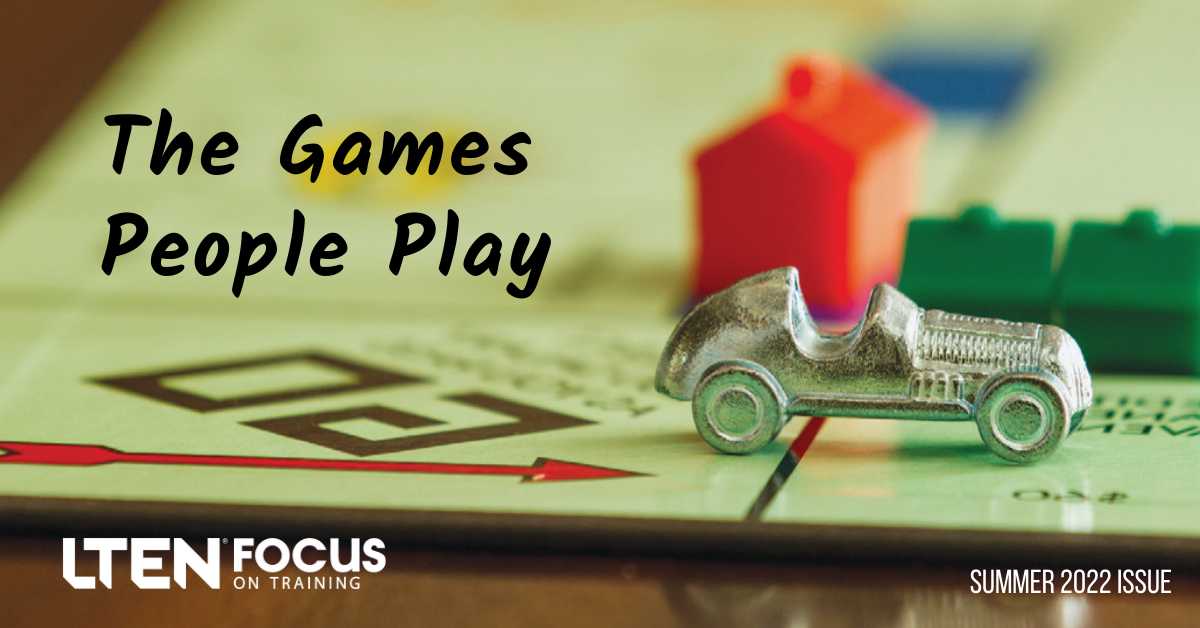
Solutions – Krishna C. Kalva
Is the game about the result or the experience?
 Do you think of the times when you played games with a lot of passion? I think about them and the first thing that comes to my mind is how much I enjoyed the competition and cherished the games that I won. Of course, there were some games that I lost; however, they would appear in my mind as secondary memories.
Do you think of the times when you played games with a lot of passion? I think about them and the first thing that comes to my mind is how much I enjoyed the competition and cherished the games that I won. Of course, there were some games that I lost; however, they would appear in my mind as secondary memories.
Recently, I witnessed a conversation where two individuals passionately discussed a game they played. It was an enjoyable conversation, with both the players enthusiastically sharing their competitive spirit and the tactics they apply to outperform each other. One of them eventually lost the game.
Passing Go
As I reflected on the conversation, I started to think whether the game was indeed about the result or the experience? That question made me think and put the conversation into perspective.
It is generally understood that a game has a beginning and an end, where there is typically a determination of winning and losing. The value of winning is usually best appreciated in the context of what have you have invested in your game: the passion, the effort, the pressure, the managing of risks, tactics and skillful execution. The victories that we value the most are those that we remember and that we use in our own storytelling.
Playing the Game
Applying the context of playing games in professional lives, let me take the example of a strategic priority identified by an organization to meet one of its business goals. The goal is to address specific skill gaps to drive employee and organizational development.
The game plan, defined by the organization after thorough research, is to implement a unique solution for its employees that is inspiring, engaging and class-leading in the industry. There are competing solutions available in the market, and it is up to the organization to choose one that delivers best experience to its employees by addressing key skill gap requirements.
A team has come on board to oversee the strategic project, and one of the first goals is to scan the market and invite suppliers for a sales pitch.
Suppliers in general are trained to make a good first impression by showcasing their products and innovation roadmap. A typical approach taken by suppliers is to understand the organizational priorities and culture, tailor the solution to convince clients and beat the competition.
It is an exciting journey for the project team to speak to the suppliers, understand their innovation think tank and their willingness to be associated with the organization. It is a game of tactics, agility and skillfulness showcased by the suppliers in different situations that will help the project team determine a winner.
So, Who Won?
A winner is not necessarily the one who factually can be measured as the best, but rather the one who “feels best,” and the main driver of that feeling is how well they played the game. Choosing a winner is a key milestone; however, it is the collective efforts, shared vision and ideologies and adaptability of the solution that elevates the experience for all the members involved in the project.
Putting this into perspective, the outcomes of an elevated experience often have a ripple effect on the organization, its employees and its suppliers. Experiences are elevated when people involved can remain authentic and are allowed to freely express themselves. Elevated experiences can be transformed into success stories through active communication and engagement.
It is a team effort. However, leadership plays a key role in setting the direction for the team that shapes the experience by putting the employee and their development in the center. Leadership acts as a guiding force in building a culture for the organization that values its people, collaboration and teamwork. Leaders model roles by being mindful and apply chosen behaviors that transform individuals and organizations.
Reaching the End
Let me take you back to the original idea, playing games. One can look at life in general and situations as a game of Tetris. You never know what shape will show up in the puzzle until you see it. Whatever shape appears, we spontaneously adapt to place it and continue with the game.
By remaining curious, we enrich our experiences through anticipation by smartly placing each shape that appears. Our experiences become joyful by embracing a beginner’s mindset and active participation by not being attached to the idea of winning.
Every game has an inevitable ending. However, it is the memories we create from the experiences that make the games we play interesting.
Krishna C. Kalva is learning solution manager at Siemens Healthineers. Email him at krishnachaitanya.kalva@siemens-healthineers.com.








